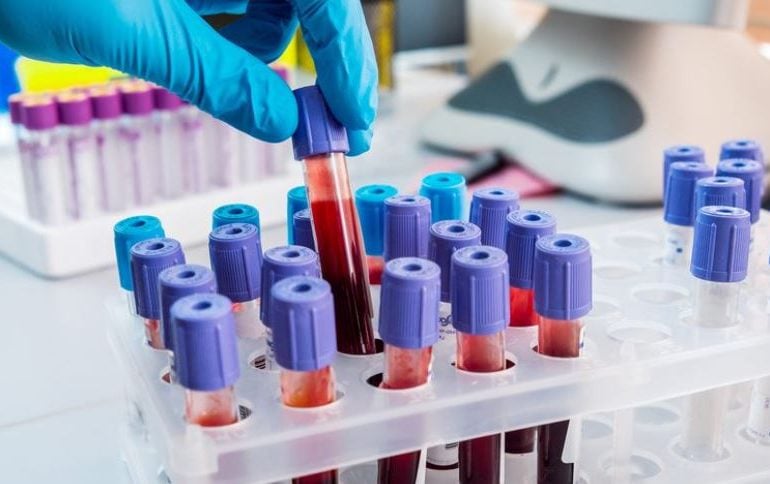Scientists have discovered a new blood test they claim could check for about 50 different types of cancer often before symptoms begin to show in patients.
Research has long investigated procedures with which oncologists and other experts could adopt when it comes to diagnosing cancer patients to offer hope for early detection of the disease.
Cancer Research UK had also teamed up with US scientists to find out the earliest signs of cancer through less invasive tests such as blood, breath, and urine analyses with new imaging techniques.
But, in a new development, a test that could detect up to 50 types of cancer has been discovered on the basis of the DNA that is shed by cancer tumours and found circulating in the blood.
UK Guardian reports that the test identifies chemical changes to this DNA, known as methylation patterns, and can also shed light on the type of cancer the patients have.
In an article published in the journal Annals of Oncology, the experts said they developed the test using a machine learning algorithm that picks patterns within data and learns to classify it.
They had fed this AI system with data on methylation patterns in DNA from within blood samples taken from more than 2,800 patients and further trained it with data from 3,052 participants.
Of this figure, 1,531 had cancer and 1,521 did not. But the AI system was able to sort the samples into groups based on the patterns while being taught which groups reflected which type of cancer.
“In pregnant women, we look in free-floating DNA for foetal anomalies. How do you perfect looking for cancer in free-floating DNA? That is what machine learning did,” the researchers explained.
After looking at more than 50 types of cancer, including bowel, lung and ovarian, the test was said to have accurately detected the type of cancer in 96 percent of the samples.
On when this method would be ready for routine use, BBC quoted Geoff Oxnard, the lead researcher, as saying: “It seems to have all features needed to be used on a population scale.
“Everyone asks when a test like this will be ready for use. Based on this successful validation in thousands of patients, the test has now been launched for limited use on clinical trials,” he said.
“But before this blood test is used routinely, we will probably need to see results from clinical studies like this to more fully understand the test performance.
“Certainly the field is moving quickly and it makes us hopeful that blood-based cancer detection will be a reality.”
Copyright 2025 TheCable. All rights reserved. This material, and other digital content on this website, may not be reproduced, published, broadcast, rewritten or redistributed in whole or in part without prior express written permission from TheCable.
Follow us on twitter @Thecablestyle

